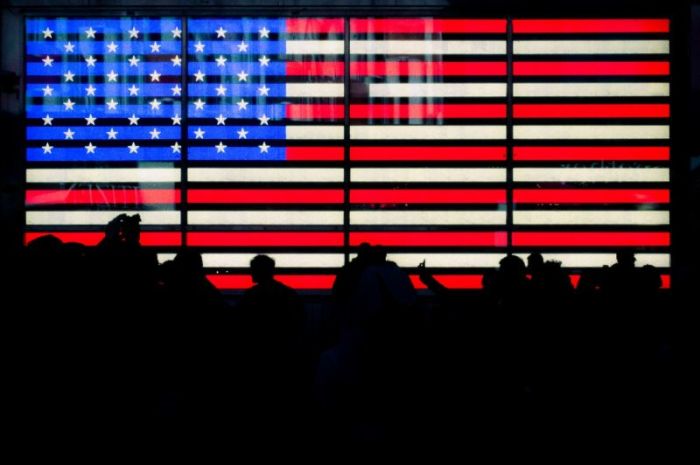
New research reveals which U.S. states are the most and least charitable during the Christmas season, a time often defined by generosity, approaches.
A study compiled by WalletHub and released on Monday ranked U.S. states from most charitable to least charitable, based on two categories: the amount of volunteering and service that residents of each state engage in, as well as the amount they donate to charity.
Factors that influenced a state’s score on volunteering and service included the volunteer rate, number of volunteer hours per capita, the share of the population that does favors for their neighbors, the amount of money that people would lend their neighbors in need, the share of the population that collects and distributes food, the share of the population that collects and distributes clothes, the share of the population that fundraises or sells items to raise money, and the share of the population that engages in general labor.
Meanwhile, factors that influenced a state’s score on charitable giving included: the share of income donated to charity, the share of the population donating their time, the share of the population donating money, the number of public charities per capita, the number of top rated public charities per capita, charity regulations, Google search interest for “Charitable donations,” the number of “Feeding America” food banks per capita, and the share of sheltered homeless.
Overall, Wyoming took the top spot as the most charitable state in the U.S., with a score of 69.49. Utah, Maryland, Minnesota, Virginia, Colorado, Delaware, Maine, Pennsylvania and Oregon round out the top 10.
Meanwhile, the least charitable state overall was New Mexico, followed by Nevada, Mississippi, Alabama, Rhode Island, Louisiana, West Virginia, Arizona, Florida and Michigan.
Wyoming residents spend an average of 29 hours per year volunteering and donate an average of nearly 4% of their adjusted gross income to charity, while the state shelters 82% of its homeless population.
In Utah, nearly half of the population (47%) volunteers, with volunteers donating an average of 46 hours per capita of their time. Over 68% of Utahans reported helping their neighbors, while the average share of income donated to charity by state residents is 3.5%.
Sixteen percent of Maryland taxpayers give money to charity, while 83% of the state’s homeless population is sheltered.
When it comes to volunteering and service, Utah was the most charitable state, followed by Wyoming, Idaho, Montana, Minnesota, Maine, Oregon, Delaware, Alaska and New Hampshire. The 10 most charitable states in terms of charitable giving were Virginia, New York, Maryland, Georgia, California, Wyoming, Arkansas, Colorado, Massachusetts and Illinois.
New Mexico had the lowest score in both volunteering and service, as well as charitable giving.
Utah was the state with the highest volunteer rate, followed by Vermont, Minnesota, Nebraska and Kansas. The state with the lowest volunteer rate was Rhode Island, followed by Nevada, Alabama, New Mexico and Florida.
Residents of Wyoming and Utah gave the highest share of their income to charity, followed by Arkansas, Georgia and New York. West Virginia residents donated the lowest percentage of their income to charity, followed by Maine, Rhode Island, Alaska and Wisconsin.
Utah also had the highest percentage of residents who donate their time, followed by Vermont, Nebraska, Minnesota and Kansas. Rhode Island had the lowest share of residents who donate time, followed by Nevada, Alabama, New Mexico and Mississippi.
Maryland had the highest percentage of residents who donate money, followed by California, Utah, Virginia and New Jersey. Conversely, West Virginia had the smallest percentage of residents who gave money, followed by North Dakota, South Dakota, Ohio and Alaska.
The state with the highest share of the population that collects and distributes food was North Dakota, with Indiana, Ohio, South Dakota and Arkansas rounding out the top five.
Rhode Island had the lowest percentage of the population that collects and distributes food, with New Mexico, Arizona, Alaska and Colorado rounding out the bottom five.
Delaware, Montana, Vermont and Wyoming were tied as the states with the highest number of charities per capita. Maine also made the top five. Meanwhile, Utah had the fewest number of charities per capita, followed by Arizona, Mississippi, New Mexico and Kentucky.
The publication of WalletHub’s research about charitable giving in the U.S. comes just over three weeks ahead of Giving Tuesday, when Americans are encouraged to donate to trusted charities. The study’s release comes a month-and-a-half before Christmas, when people buy gifts for their family and friends and seek to help the less fortunate.
Ryan Foley is a reporter for The Christian Post. He can be reached at: ryan.foley@christianpost.com

















